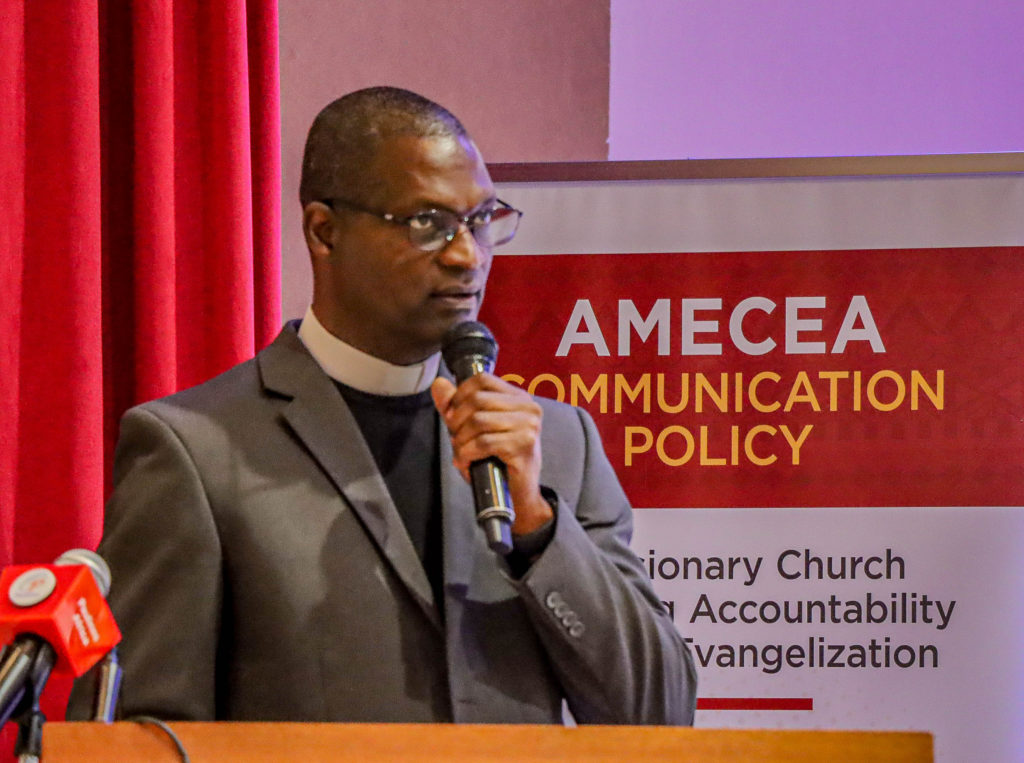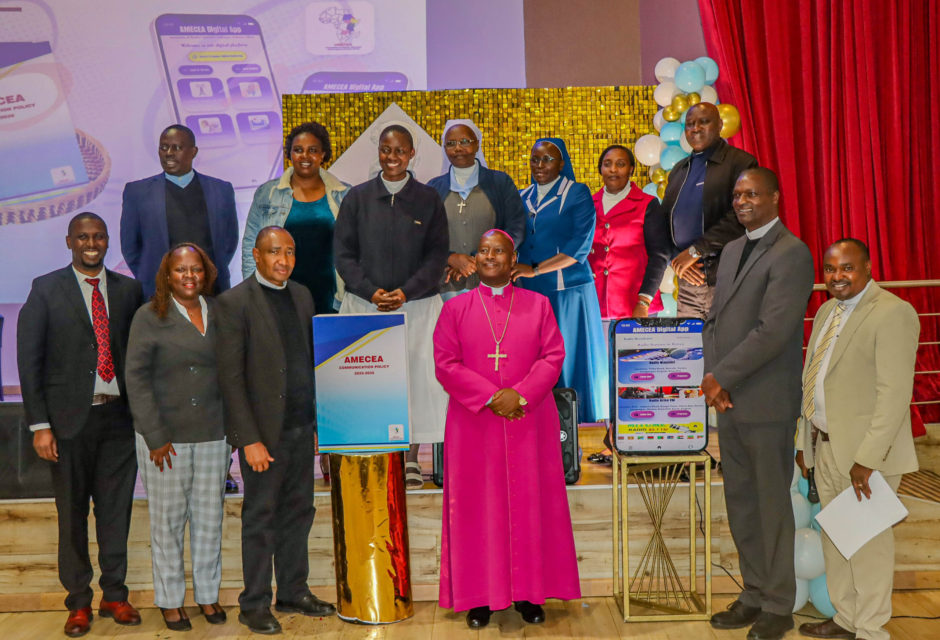AMECEA LAUNCHES SOCIAL COMMUNICATIONS POLICY AND DIGITAL APP
The Association of Member Episcopal Conferences in Eastern Africa (AMECEA) has officially launched its Social Communications Policy 2025–2035, alongside the unveiling of their Digital APP, a regional digital platform linking Catholic media outlets. The event was held at the Consolata Shrine Auditorium.
Speaking during the launch, Fr. Anthony Makunde, AMECEA Secretary General, emphasized that the policy is designed to provide direction and prevent fragmentation in Church communication.
“Our hope is that this regional policy will inspire national structures to articulate communication strategies that respond to their unique local realities while remaining rooted in the broad vision of the Catholic Church,” he said.
He explained that the policy will serve not only the AMECEA Secretariat but also as a reference point for member conferences and dioceses across Eastern Africa.
Bishop Wallace, who was the chief guest at the event, underscored the vital role of communication policies in strengthening the Church’s mission.
“Communication policies are not bureaucratic, but liberating frameworks,” he said. “They ensure consistency with pastoral truth, protect children and vulnerable adults, and prepare us to respond professionally to misinformation and crises.”
He further highlighted Africa’s unique advantage in digital modernization, rooted in traditions of storytelling, community, and shared responsibility.
“The challenge before us is not choosing between ancient wisdom and modern tools, but uniting the two,” he added.
Alongside the policy, AMECEA introduced their Digital App, an innovative tool that integrates all Catholic communication media in the region into a single platform accessible via mobile phones, tablets, and computers. The platform will initially connect 66 Catholic radio stations, offering listeners and communities centralized access to content.
These initiatives, he noted, aim to use media as tools for evangelization, community service, and building a Church of hope.
Fr. Andrew Kaufa, Head of AMECEA Social Communications, outlined three main priority areas of the policy:

- Digital Evangelization – strengthening the Church’s online presence, particularly among youth and digital natives.
- Transparency & Accountability – promoting openness, trust, and child protection.
- Digital Responsiveness – ensuring timeliness in communication in an era of instant information.
The policy also introduces Crisis Communication and Management guidelines, calling for dioceses and conferences to establish crisis teams, monitoring systems, and rapid response strategies to counter misinformation and scandals. Official Church spokespersons will work closely with these teams to ensure clear, credible messaging.
As the launch concluded, a call for collaboration at all levels was made:
- AMECEA Secretariat – to implement the policy regionally.
- Bishops’ Conferences – to design localized strategies rooted in cultural realities.
- Dioceses – to adapt the guidelines for grassroots communities.
- Catholic Media – to uphold truth, combat misinformation, and foster inclusivity.
Summing up the day, Bishop Wallace said:
“The communication policy we launch today must shape the Church’s voice for tomorrow – a voice that is clear, compassionate, and compelling. A voice that builds bridges, heals wounds, and includes rather than excludes.”




